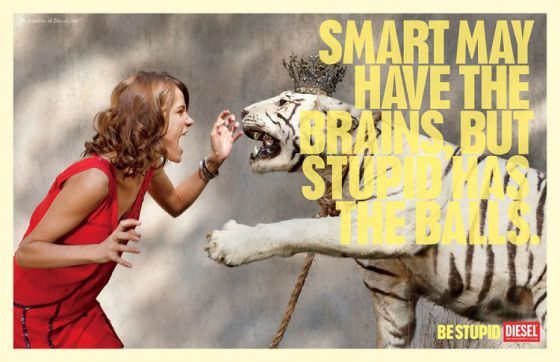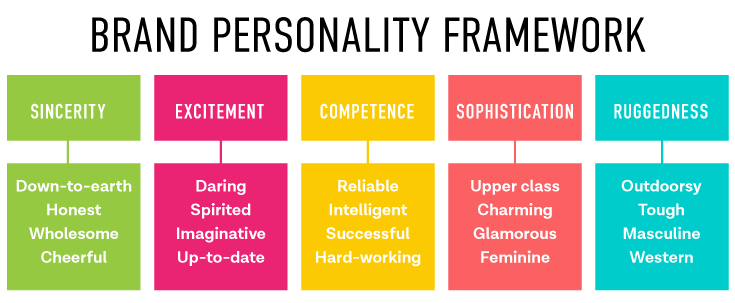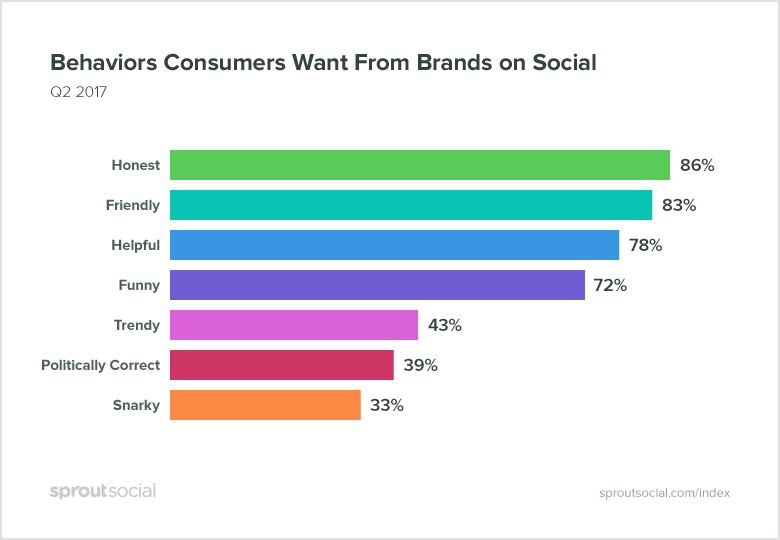What is brand personality (and how to build one)

Brand personality is something every brand strives to have. It makes them memorable, makes them stand out, connects them with their customers. Every long-lasting brand you can instantly recall has a personality. But let’s start from the beginning:
What is brand personality?
Brand personality is a set of human characteristics, such as qualities and demographics, attributed to a brand.
For example, if you had to imagine Apple as a person, who would that person be? Probably, someone young, hip, smart, and creative. And how would you imagine Chanel? Probably, as an adult woman — beautiful, sophisticated, rich, and classy.
These brands worked hard to develop and maintain these images. They are consistent despite the diversity among the customers; some, like Chanel, have survived over generations. Some, like Victoria’s Secret, attempt to change their image due to the changing nature of what’s considered an attractive brand personality. If before Victoria’s Secret could be described as sophisticated, sexy, and feminine, today, it’s more like a mean girl clique that won’t let you sit with them because you’ve gained a couple of pounds during quarantine.

Why do brands need a personality?
People connect best with other people. Personality characteristics humanize the brand in the eyes of customers and create an emotional connection. You can experience an instant or developed emotional connection with a brand just like you would with a person. Weird, huh? Connection, in turn, fosters memorability and recognition. Just like you would remember a cool rebel you’ve met on your first job, you remember Dr. Martens while forgetting all other similar brands.
I personally had an instant emotional connection with Diesel when they released the “Be Stupid” campaign. I was 17, and most of their posters seemed relevant. Diesel looked like an understanding and equally reckless friend.

Emotions also affect sales directly. They do that in a number of ways:
1. You feel good about the brand. You have the same values, and, by choosing the brand, you promote these values.
For example, Aerie lingerie promotes natural beauty and fights unrealistic beauty standards set by the media. By choosing Aerie, you supposedly support this idea.

2. You subconsciously believe that buying the product will make you happy, or in love, or wise and sophisticated - whatever the brand promotes.

If you strive to be (or to have the life of) a personality that the brand represents, it increases the brand’s chances for you to buy their product. Of course, every one of us realizes that after buying the right perfume, we won’t suddenly become a woman in love, running through Paris in a glamorous dress. However, the association is built.
3. You associate brands with specific emotions and events.
Other associations are also built. You know the all-nighter drink should be Red Bull, the holiday drink should be champagne, and the drink to strive for as a kid should be Coca-Cola. Decades of conditioning through advertising brought us here.

How to create a brand personality?
Creating a brand personality is part of the brand strategy discussion. It should reflect your customers’ qualities, demographics, values, and “ideal selves”. Only by knowing your customer will you be able to come up with the most relevant and favorable brand personality.
There are a couple of frameworks for creating brand personalities. I chose the one developed by Stanford psychologist Jennifer Aaker in her paper Dimensions of Brand Personality. Unlike others, it’s grounded in research.
It contains 15 traits organized into five core dimensions:

Choosing one most suited to your brand (and your customers) will give you a starting point in creating your brand’s personality.
Perhaps, a study by Sprout Social will also help you to understand which personalities and which behaviors most people want to see. Firstly, they discovered that the more authentically the brand behaves, the better. So simply put, don't try to be someone you're not, even as a brand. Secondly, customers prefer that brands are honest, friendly, and helpful over anything else.

How to build a brand personality?
So now you know what your brand should be like. You imagine it as a person and you know its demographics, qualities, values, and level of income. What next? How do you make sure this personality is clear and evident to your customers?
Brand personality should be communicated through tone of voice, marketing campaigns, visuals, and customer service policies. And most of all, it should be communicated through social media. Social media literally figuratively exists so that your brand could show its human face to the whole world.
Social media is where corporate culture doesn't make sense. Yet, most people follow brands on social media, breaking the imaginary distance and assuming a brand is just another person who will be friendly, helpful, and maybe even funny and smart. All that's required from a brand is producing great and relevant content, engagement, and customer care — all in line with its brand personality.
Almost every strong brand out there is a good example of brand personality communication.
Taco Bell jokes around with its followers on social media and turns its customer service into banter. It’s sincere, down-to-earth, funny, and friendly.

Netflix is the same: it will discuss upcoming series with you, suggest “Netflix and chill” at every possible opportunity, and follow the same hashtags you follow.
Red Bull is exciting, daring, and free-spirited. They sponsor many events that reflect these values, encourage you to “follow your dreams” in self-made flash mobs, and post videos of cool sports achievements.

Tesla has a similar personality, with daring and imaginative Elon Musk as its main speaker.

Microsoft represents competence — its brand personality opposes “exciting” Apple. Its calm social media presence, advertising, and charity initiatives reflect its stable, reliable, and hard-working place in the IT universe.
Observing brands that reflect a similar personality to yours is a great way to learn all the ways you can communicate the emotions and thoughts behind your brand.
Talking to your customers, observing their conversations, getting to know their personalities is an even better way to do that.













